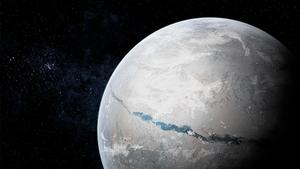Neoproterozoic continental carbonates recording transition from icehouse to tropical conditions on Baltica - Maciej Bojanowski, Institute of Geological Sciences, Polish Academy of Sciences, 25 maggio, h. 17, aula Ruffini
Da: Giovedì 25 maggio 2023 ore 17:00
Fino a: Giovedì 25 maggio 2023 ore 18:00

In the Precambrian, after the Boring Billion, a long period of apparent stability in Earth’s oceans and atmosphere, the Earth experienced particularly dynamic climatic and biotic perturbations at the end of the Proterozoic. Our planet transformed from a state likely matching the early Mars, with the “Snowball” glaciations in the Cryogenian (720-635 Ma), to the “modern” style in the Ediacaran (635-538.8 Ma), with the key evolutionary inventions that paved the way for the subsequent development of life. This talk will outline how this transformation is recorded in the East European Craton, which constituted the Baltica paleocontinent at the end of Proterozoic. The large area between the White and Black Seas reveals extreme climatic changes from icehouse to tropical conditions, incomparable with any modern environment. Special focus will be on the sedimentary and microbial features in paleolake deposits, which roughly match the present-day cold deserts, such as Antarctic Dry Valleys. However, they may represent analogs of the early Martian lakes, such as the Jezero paleolake, currently under investigation by the Perseverance rover mission aimed at finding traces of former life. Such lakes might have played a critical role in early life evolution by providing refugia of microbial life during extreme glaciations, both on Earth and Mars.
The Speaker:
Maciej Bojanowski, Institute of Geological Sciences, Polish Academy of Sciences
On site: h. 17:00 Aula Ruffini, DST
Remote: via webex at this link
Contacts: geoseminar.dst@unito.it





